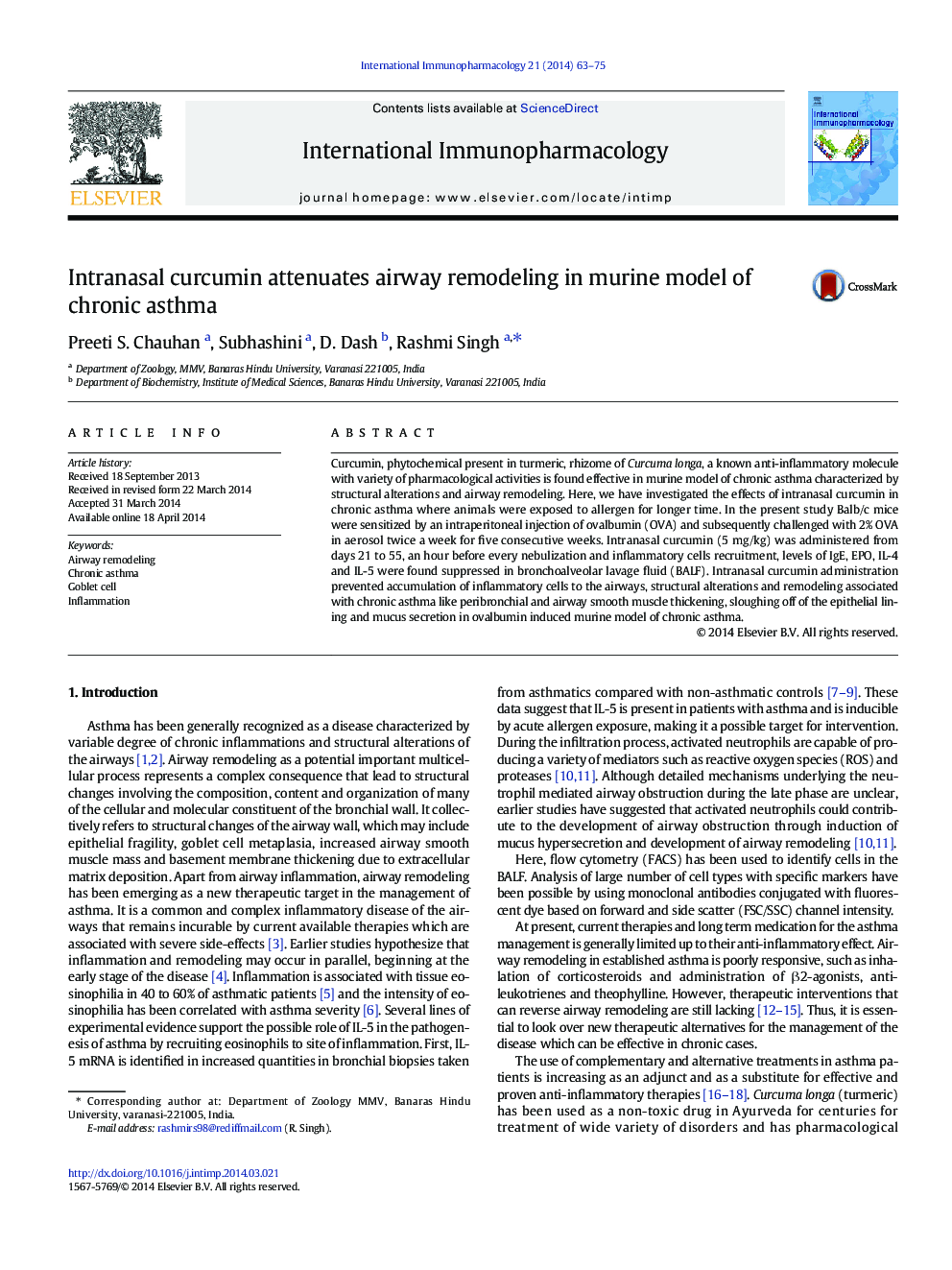| Article ID | Journal | Published Year | Pages | File Type |
|---|---|---|---|---|
| 5832634 | International Immunopharmacology | 2014 | 13 Pages |
â¢Neutrophils and eosinophils both play significant role in chronic asthma.â¢Intranasal curcumin is effective in attenuating airway inflammation and remodeling.â¢It downregulates, IgE level, Th2 response and ameliorates TNF-α level thereby neutrophil recruitment.â¢It effectively upregulates Th1 response which could play protective role.â¢Unlike Dexamethasone, it is effective in chronic asthma being not associated with any side effect.
Curcumin, phytochemical present in turmeric, rhizome of Curcuma longa, a known anti-inflammatory molecule with variety of pharmacological activities is found effective in murine model of chronic asthma characterized by structural alterations and airway remodeling. Here, we have investigated the effects of intranasal curcumin in chronic asthma where animals were exposed to allergen for longer time. In the present study Balb/c mice were sensitized by an intraperitoneal injection of ovalbumin (OVA) and subsequently challenged with 2% OVA in aerosol twice a week for five consecutive weeks. Intranasal curcumin (5Â mg/kg) was administered from days 21 to 55, an hour before every nebulization and inflammatory cells recruitment, levels of IgE, EPO, IL-4 and IL-5 were found suppressed in bronchoalveolar lavage fluid (BALF). Intranasal curcumin administration prevented accumulation of inflammatory cells to the airways, structural alterations and remodeling associated with chronic asthma like peribronchial and airway smooth muscle thickening, sloughing off of the epithelial lining and mucus secretion in ovalbumin induced murine model of chronic asthma.
